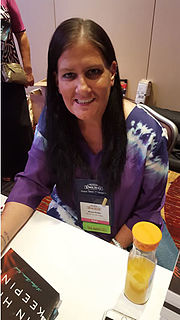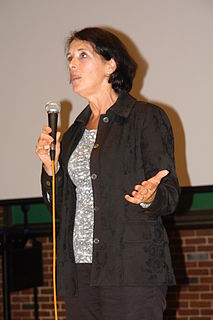A Quote by Ronnie Chan
To be honest, we donate to projects that we think are meaningful. How society views it or how we are viewed by history, well, we'll let them decide. How others view us is out of our control.
Related Quotes
How we view ourselves can often determine the perspective and degree in which we see others and the world around us. Each and every one of us has a view. Such a view, that it can shape the future of others and how they live, dream and look towards the future that we all hope is better and more fruitful than our past. This I believe is a common initiative.
It is not nearly so important how well a message is received as how well it is sent. You cannot take responsibility for how well another accepts your truth; you can only ensure how well it is communicated. And by how well, I don't mean merely how clearly; I mean how lovingly, how compassionately, how sensitively, how courageously, and how completely.
Considering how much we are all given to discuss the characters of others, and discuss them often not in the strictest spirit of charity, it is singular how little we are inclined to think that others can speak ill-naturedly of us, and how angry and hurt we are when proof reaches us that they have done so.
Of course you have a duty to show the disfigurations of society as well as its more agreeable aspects. But if TV in the western world uses its freedom continually to show all that is worst in our society, while the centrally controlled television of the Communist world and the dictatorships show only what is judged advantageous to them and suppress everything else, how are the uncommitted to judge between us? How can they fail to misjudge if they view matters only through a distorted mirror?
It teaches us how to run our lives individually. How to run our families, how to run our churches. But it teaches us how to run all our public policy and everything in society. And that's the reason, as your congressman, I hold the Holy Bible as being the major directions to me of how I vote in Washington, D.C., and I'll continue to do that.
I actually think that bass is probably the instrument that has evolved in a quantum leap compared to other instruments. It's the instrument that's evolved the most, especially with how it's perceived. And even how it's played, and how it's viewed from a point of view of commerce, like with the music industry.
I did start out quiet, and I found out you can change a person's life by simply saying, 'Hey,' or, 'How was your day?' Not everybody gets that opportunity with the way society views you or how you look or the way you dress or how you interact. You hear the weird cliches: socially awkward. I think we're all socially awkward.


































